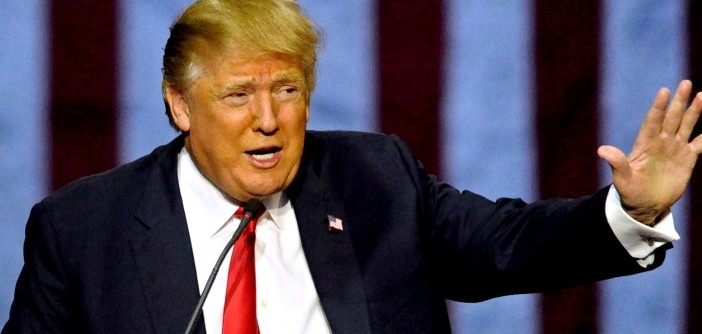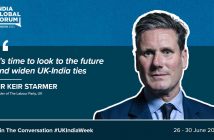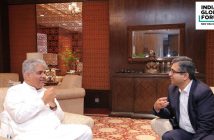by Manoj Ladwa
Will the real Donald Trump please stand up! First, he mimics an Indian call centre executive’s accent as a proxy for how globalisation is hurting the US; he rails against H1B visa holders decimating “women and minorities” in the US; and then, in an about turn, says: “We need highly skilled people in this country. If we don’t do it, we will get them in.”
This, as well as his ambivalent attitude towards the security of the US’ Nato allies and his open admiration for Russian President Vladimir Putin – unheard of among frontline US politicians – mark him out as a maverick difficult to predict.
So, what should India make of him? And more importantly, how will a Trump presidency affect New Delhi? The jury is out and any verdict at this time will be like throwing darts in the dark. The truth is: no one knows. Trump has said nothing substantive, either on his economic or foreign policy vision, so foreign policy wonks are scratching their heads trying to figure out the man and, meanwhile, hedging their bets.
![]()
A Clinton presidency is likely to be more predictable. The Democratic presidential nominee has been in public life long enough for everyone to know her positions on various issues. Indians, taking hope from her statement that Pakistan has been rearing snakes in its backyard, will be hoping for a decisive US tilt towards New Delhi. Clinton’s choice of vice-president will increase optimism on this count.
But then, Clinton is too much of a Washington insider and therefore will, in all probability, try to balance various factions on Capitol Hill. Result: there is little likelihood of a dramatic change in script with regard to the sub-continent.
On the economy and on geo-strategic ties, too, one can expect Barrack Obama’s legacy to continue.
At this point, then, a Clinton presidency looks more favourable for India but only just. Things could change very fast if and when Trump outlines his vision for the world.
India and the US have becoming increasingly interdependent on global strategic and economic matters. Prime Minister Narendra Modi’s flagship programmes such as Make in India and Digital India have had good traction within the US private sector and repeatedly endorsed by US officials. However much, much more needs to be done as trade ties between the two countries are still some way from fulfilling their full potential.
India and its 2.5-million strong US diaspora must not stand on the sidelines. They have interests and concerns that should be articulated over the coming weeks. Being a mute invisible bystander is not an option.
For now, Prime Minister Modi, who has infused a lot of energy into the traditionally staid Indian foreign policy establishment, will probably want to bide his time to see which way the wind is blowing in the US.
Manoj Ladwa is the founder of India Inc. and chief executive of MLS Chase Group @manojladwa
Sign-up for full access to India Global Business magazine.







